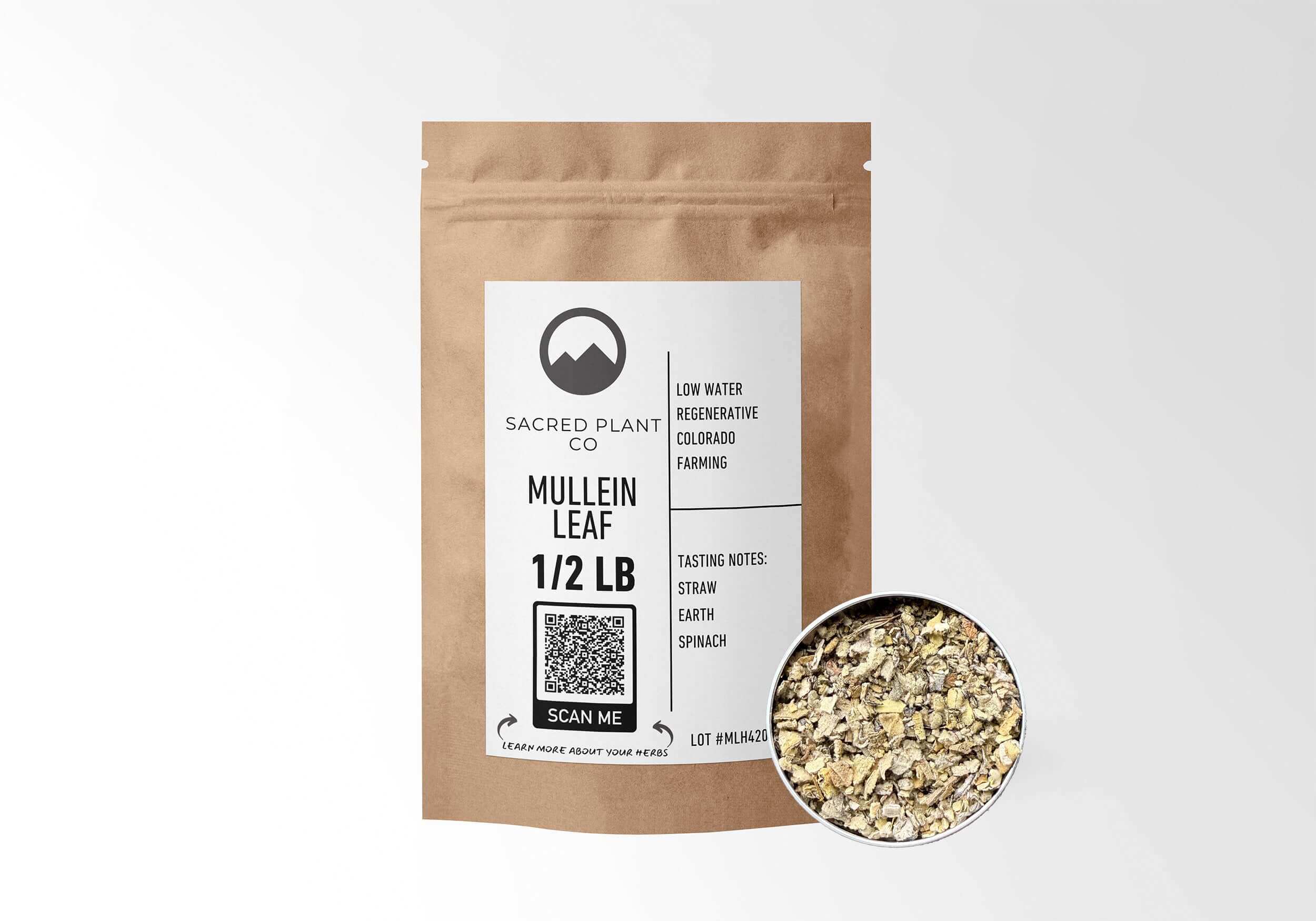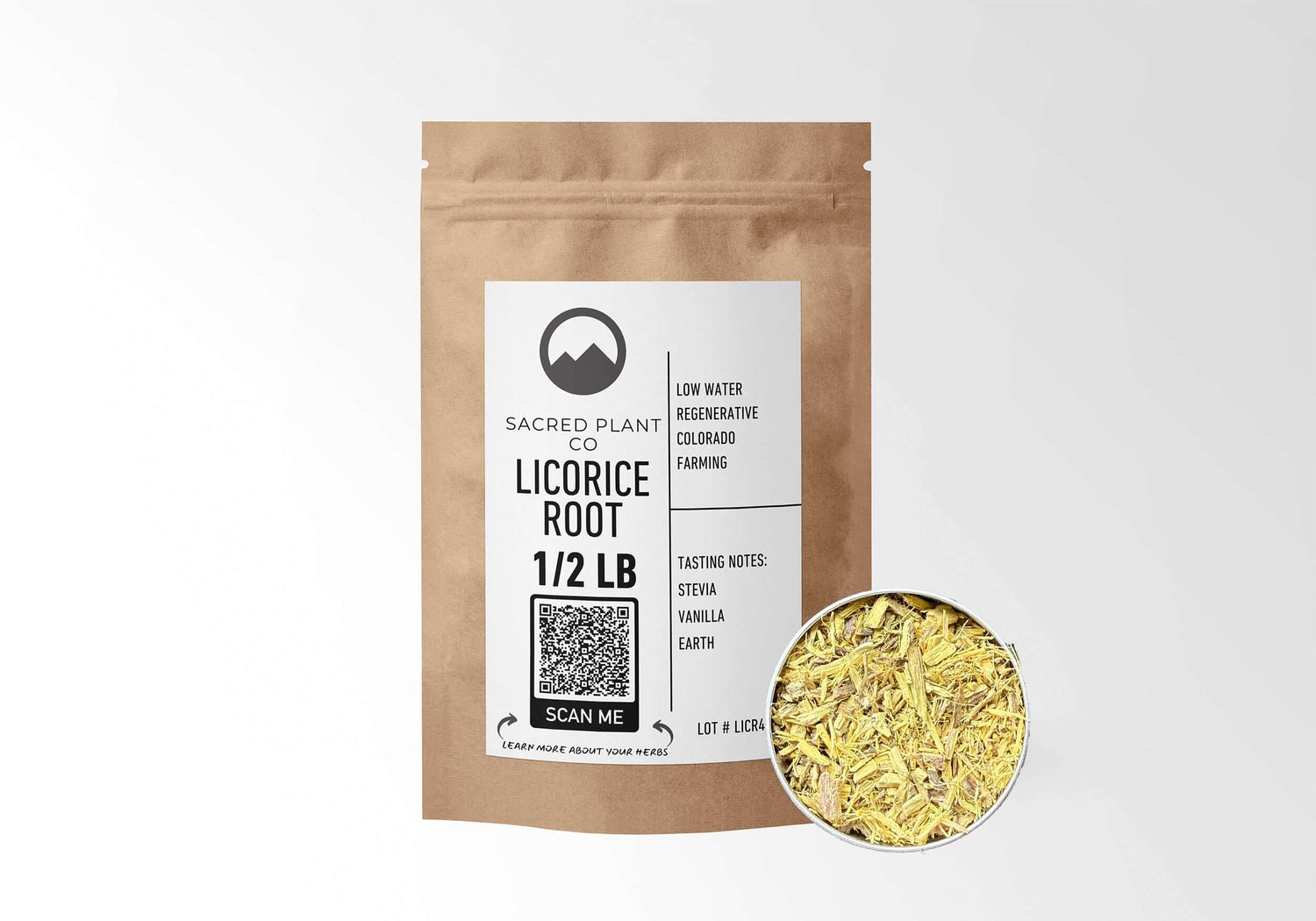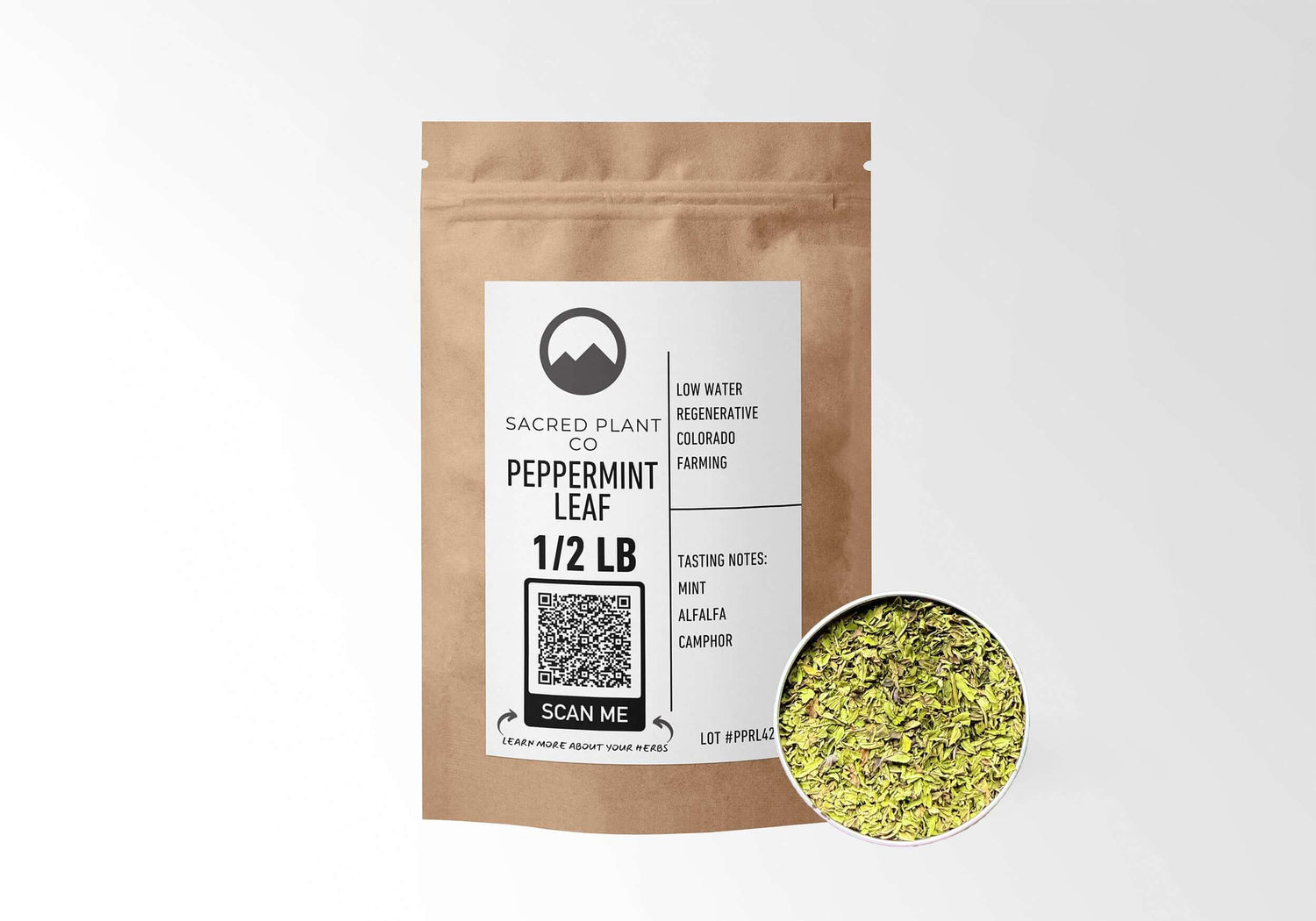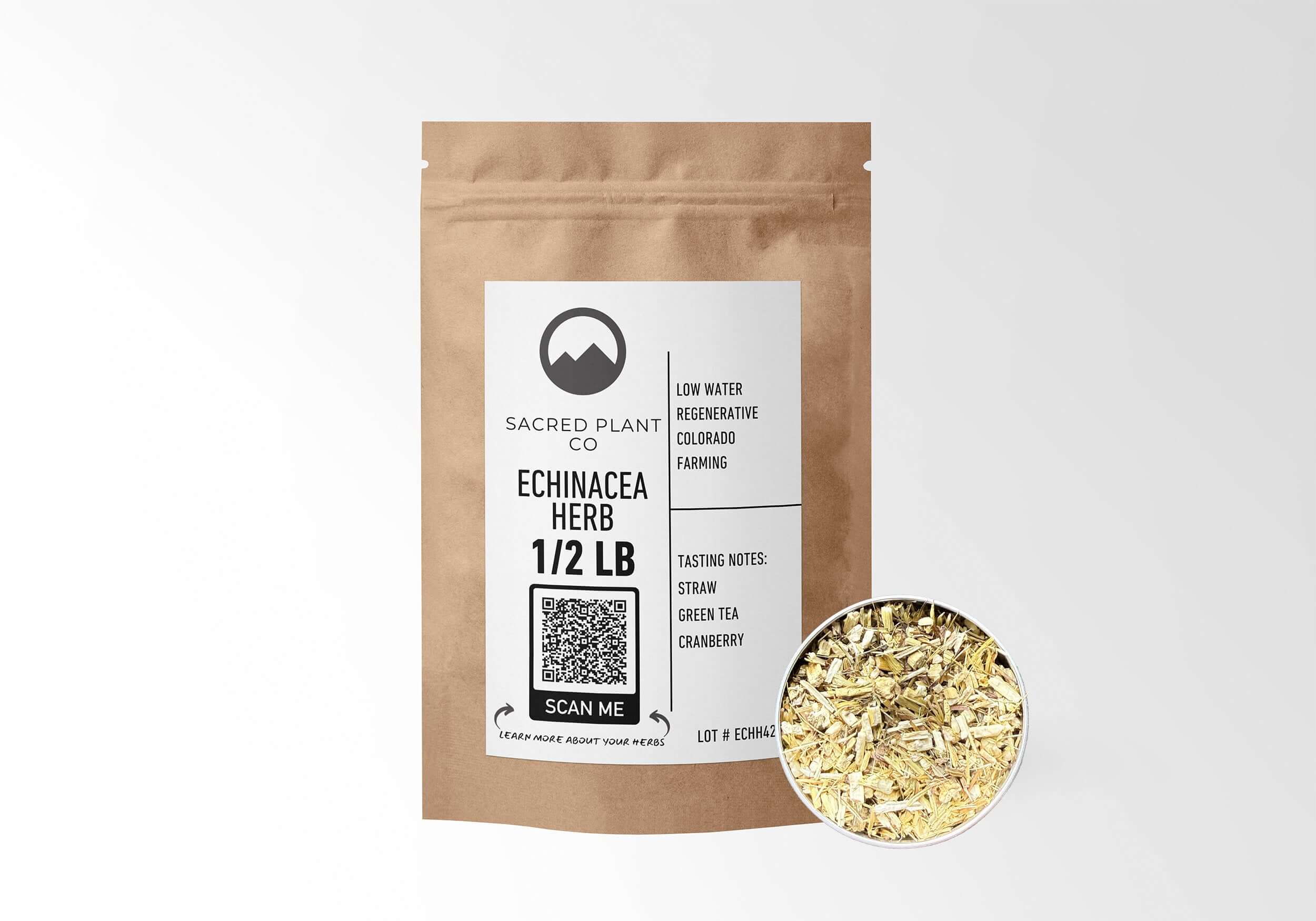Why Respiratory Health Matters
Breathing is life, yet respiratory challenges like allergies, asthma, and congestion can make every breath a struggle. Whether you’re seeking relief from seasonal discomfort or looking to support long-term lung health, herbs offer powerful, natural solutions. From clearing airways to soothing inflammation, respiratory health herbs have been used for centuries to promote clearer breathing.
In this guide, we’ll dive into the best herbs for Respiratory Health, how they work, and ways to incorporate them into your daily routine. If you’re ready to breathe easier, Sacred Plant Co offers a premium selection of sustainably sourced herbs tailored to your respiratory wellness needs.
Understanding Respiratory Health

How the Respiratory System Works
The Respiratory System is responsible for delivering oxygen to the body and expelling carbon dioxide. From your nasal passages to your lungs, every part plays a role in keeping you breathing smoothly.
Common Respiratory Challenges
- Seasonal Allergies: Triggers like pollen and dust can cause inflammation and congestion.
- Chronic Conditions: Asthma, bronchitis, and COPD require ongoing care to manage symptoms.
- Acute Issues: Colds and respiratory infections often lead to coughing, mucus buildup, and difficulty breathing.
The Role of Herbs
Herbs work naturally to:
- Reduce inflammation in airways.
- Act as expectorants to clear mucus.
- Boost immunity to prevent respiratory infections.
By supporting the body’s natural processes, herbs provide a gentle yet effective way to maintain respiratory health.
The Benefits of Respiratory Health Herbs
Incorporating respiratory herbs into your wellness routine offers numerous advantages:
- Clearing Congestion: Mullein and Peppermint loosen mucus, making it easier to expel.
- Reducing Inflammation: Herbs like Licorice Root and Turmeric soothe irritated airways and improve breathing.
- Boosting Immunity: Echinacea and Elderberry help the body fight off respiratory infections.
- Relaxing Airways: Valerian and Lobelia reduce spasms and ease breathing.
These herbs not only address symptoms but also work to support your respiratory system long-term.
Top Herbs for Respiratory Health

Mullein
- Benefits: Known for its soothing properties, Mullein helps clear mucus and reduce inflammation in the lungs.
- How to Use: Brew as a tea or inhale steam from dried leaves for quick relief.
Licorice Root
- Benefits: An anti-inflammatory and immune booster, Licorice Root soothes irritation in the throat and airways.
- How to Use: Prepare as a tea or use a tincture for a concentrated dose.
Thyme
- Benefits: A natural antiseptic, Thyme combats respiratory infections and relieves coughs.
- How to Use: Use as a tea or steam inhalation.
Peppermint
- Benefits: The menthol in Peppermint opens nasal passages and soothes congestion.
- How to Use: Brew into tea or add dried leaves to steam inhalation.
Echinacea
- Benefits: Boosts immunity, helping prevent and shorten respiratory infections.
- How to Use: Take as a tincture or in capsule form.
Studies Supporting Respiratory Herbs

Mullein
Studies have shown Mullein’s ability to act as an expectorant, clearing mucus from the lungs and reducing inflammation.
Licorice Root
Research highlights its effectiveness in soothing respiratory irritation and its antiviral properties for combating colds.
Peppermint
Clinical studies confirm menthol’s ability to open airways and reduce nasal congestion.
Echinacea
Multiple studies support Echinacea’s role in boosting immune function, helping the body fight off respiratory infections.
How to Use Respiratory Health Herbs
Teas
- Combine herbs like Mullein and Peppermint for a soothing tea.
- Drink warm to loosen mucus and ease throat irritation.
Tinctures
- Alcohol-free tinctures offer quick absorption.
- Add a few drops to water or tea for an immune boost.
Steam Inhalations
- Use Thyme or Peppermint leaves in hot water to create a steam inhalation.
- Inhale deeply to clear nasal passages and reduce congestion.
Capsules
- For those on the go, encapsulated herbs like Echinacea provide a convenient option.
DIY Herbal Recipes for Respiratory Health
Herbal Decongestant Tea
- Ingredients: 1 tsp Mullein, 1 tsp Peppermint, 1/2 tsp Thyme.
- Instructions: Brew in hot water for 5–7 minutes. Drink warm to relieve congestion.
Immune Boosting Tincture
- Ingredients: Echinacea, Elderberry, Licorice Root.
- Instructions: Combine equal parts of each tincture and take a dropperful daily.
Soothing Steam Inhalation
- Ingredients: 1 tbsp Peppermint, 1 tbsp Thyme.
- Instructions: Add herbs to a bowl of steaming water, cover your head with a towel, and inhale deeply.
Homemade Chest Rub
- Ingredients: 1/4 cup coconut oil, 10 drops Eucalyptus essential oil, 1 tsp dried Rosemary.
- Instructions: Heat oil, add Rosemary, strain, and stir in Eucalyptus. Apply to chest for congestion relief.
DIY Herbal Recipes for Respiratory Health
Crafting your own herbal remedies is an excellent way to address respiratory issues naturally and effectively. Here are a few simple recipes using herbs known for their respiratory benefits. These recipes are easy to make and perfect for soothing congestion, reducing inflammation, and supporting overall lung health.

1. Herbal Decongestant Tea
A soothing tea that helps clear mucus and opens airways.
Ingredients:
- 1 teaspoon dried Mullein leaves
- 1 teaspoon dried Peppermint leaves
- 1/2 teaspoon dried Thyme
Instructions:
- Combine all herbs in a teapot or infuser.
- Pour 1 cup of boiling water over the herbs.
- Steep for 5–7 minutes, then strain.
- Drink warm to ease congestion and soothe your throat.
Serving Tip: Add a teaspoon of honey for added throat-soothing benefits.
2. Immune-Boosting Herbal Tincture

Strengthen your defenses against colds and respiratory infections.
Ingredients:
- 1 part dried Echinacea root
- 1 part dried Elderberry
- 1/2 part dried Licorice Root
- 1 cup alcohol-free glycerin or vodka (for tincture base)
Instructions:
- Place herbs in a clean jar and cover with the tincture base.
- Seal the jar tightly and store in a cool, dark place for 4–6 weeks, shaking occasionally.
- Strain the liquid into a dropper bottle.
- Take 1–2 droppers daily as a preventive measure or during colds.
3. Soothing Steam Inhalation

Clear nasal passages and loosen mucus with this aromatic steam.
Ingredients:
- 1 tablespoon dried Peppermint leaves
- 1 tablespoon dried Thyme
- 3–5 drops Eucalyptus essential oil (optional)
Instructions:
- Boil 4 cups of water and pour into a large bowl.
- Add the herbs and essential oil (if using).
- Place a towel over your head, lean over the bowl, and inhale the steam deeply for 5–10 minutes.
Serving Tip: Use this remedy twice a day during colds or congestion for maximum relief.
4. Herbal Chest Rub

A natural alternative to over-the-counter chest rubs, perfect for easing congestion.
Ingredients:
- 1/4 cup coconut oil
- 1 tablespoon dried Rosemary
- 10 drops Eucalyptus essential oil
Instructions:
- Heat the coconut oil in a small pan until melted.
- Add the Rosemary and let it steep for 10 minutes on low heat.
- Strain the oil and let it cool slightly before stirring in the Eucalyptus oil.
- Transfer to a clean jar and store at room temperature.
- Rub a small amount on your chest or back to ease breathing.
5. Relaxing Respiratory Tea

A calming tea blend to reduce inflammation and support lung health.
Ingredients:
- 1 teaspoon dried Chamomile
- 1 teaspoon dried Mullein
- 1/2 teaspoon dried Valerian Root
Instructions:
- Combine all herbs in a teapot or infuser.
- Pour 1 cup of boiling water over the herbs.
- Steep for 7–10 minutes, then strain.
- Sip slowly to calm your airways and promote relaxation.
Final Tip:
Using fresh, high-quality herbs ensures the effectiveness of these recipes.
Herbs for Specific Respiratory Issues
Seasonal Allergies
- Recommended Herbs: Stinging Nettle, Butterbur, Mullein.
- How They Help: Reduce histamine response and clear airways.
Asthma
- Recommended Herbs: Lobelia, Turmeric, Licorice Root.
- How They Help: Act as bronchodilators and anti-inflammatories.
Colds and Congestion
- Recommended Herbs: Peppermint, Thyme, Echinacea.
- How They Help: Clear mucus and support immunity.
Chronic Bronchitis
- Recommended Herbs: Mullein, Elecampane.
- How They Help: Loosen mucus and reduce airway inflammation.
Choosing the Best Respiratory Health Herbs
Source Quality
- Choose herbs free from pesticides and contaminants.
- Sacred Plant Co ensures high standards of quality and sustainability.
Freshness Matters
- Look for vibrant color and a strong, natural aroma as indicators of freshness.
Form Options
- Dried herbs for teas and steam inhalations.
- Tinctures for convenience and quick absorption.
- Capsules for easy dosing.
Natural Solutions for Clearer Breathing

Respiratory Health Herbs provide a natural, effective way to address breathing challenges and support overall lung health. Whether you’re battling seasonal allergies, recovering from a cold, or managing a chronic condition, these herbs offer powerful relief.
Herbal Health Respiratory FAQ
-
What herbs support healthy lung function?
The most effective respiratory herbs include osha root, mullein leaf, thyme, licorice root, elecampane, elderflower and peppermint. Each herb works in a unique way—osha and elecampane help clear mucus, mullein soothes irritated airways, thyme and peppermint relax tight bronchial muscles, and licorice root reduces inflammation. Incorporating a blend of these herbs delivers broad‑spectrum support for clear and easy breathing. -
How should I prepare an herbal infusion for respiratory health?
To make a tea, steep 1 teaspoon of dried herb or a 1:1 blend of supportive herbs in 8 ounces of boiling water for 10 minutes. Strain and sip slowly up to three times daily. This extraction method pulls out volatile oils and active compounds that loosen mucus, reduce inflammation and fortify lung tissue. -
Can I take these herbal remedies alongside my prescription medications?
In most cases, herbal infusions and tinctures are safe alongside conventional treatments. However, some herbs like licorice root can interact with blood pressure medications and diuretics. Always consult your healthcare provider before adding concentrated herbal preparations to an existing regimen. -
How often and how long should I use respiratory herbs to see results?
For acute congestion or bronchial irritation, you may notice relief within one to three days of regular use. For chronic support, take herbal teas or tinctures once or twice daily for four to six weeks. Consistent, sustained use can help strengthen lung resilience over time. -
Are there any side effects or precautions I should know?
Most respiratory herbs are well tolerated, but potential side effects include digestive upset or allergic reactions for sensitive individuals. Licorice root can raise blood pressure if used long term. Avoid high doses of potent herbs if you have autoimmune conditions, hypertension or are pregnant. -
Are these herbs safe for children and pregnant women?
Mild herbal teas made with elderflower, mullein and thyme are generally safe for older children under pediatric guidance. Pregnant or nursing women should avoid licorice, elecampane and osha root. Always consult a qualified herbalist or healthcare professional before use. -
Where can I find high‑quality herbs recommended in this guide?
Sacred Plant Co offers sustainably grown, lab‑tested respiratory support herbs, including osha root, mullein leaf and thyme. Browse our respiratory wellness collection to shop premium herbs harvested at peak potency.









